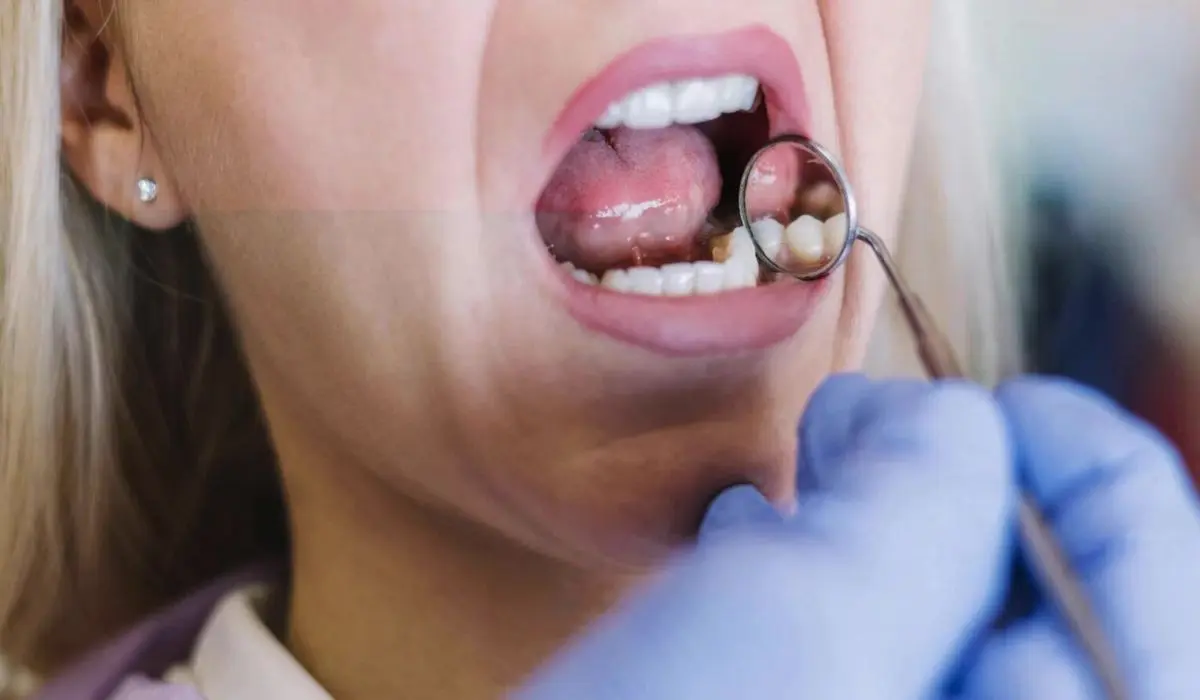Due to the changes in the human jaw and mouth, third molars, also known as wisdom teeth are likely to emerge twisted. Our younger generation has become accustomed to extracting wisdom teeth as in most cases, they become infected due to the limited space in the mouth. The lack of space will lead to squeezing them in between the tooth and gum.
This is one of the major reasons why they often force their ways to odd angles. Though wisdom teeth infection is common, it does not affect everyone. However, it is still important to learn the common symptoms of wisdom teeth infection.
Symptoms Of Wisdom Teeth Infection
One of the early signs of infected wisdom teeth is pain around them. In some severe cases, the pain may even spread out to wider regions including your throat, neck, and jaw. The following are some of the major common symptoms of wisdom teeth infection:

🦷 Bad Breath
Your wisdom teeth are likely to get infected due to the deposition of food remains. This will lead to a foul smell while talking or simply opening your mouth.
🦷 Red Or Swollen Gums
Redness or swollen gums around the wisdom teeth is often an indication of infection. The redness may also be accompanied by inflammation as well as severe pain.
🦷 A Hard Time Opening The Mouth
Due to the severity of the pain, you are likely to have a difficult time opening your mouth. In other words, once infected, talking and eating would be a hard task.
🦷 Jaw Pain
The pain in your tooth and gum may eventually spread to other areas including your jaw. This will also make talking and eating quite a hard task.
🦷 An Unpleasant Taste In The Mouth
Due to the infection, often a puss or blood might ooze out of the affected teeth and gum around it, leading to an unpleasant taste in the mouth. This will persist until you get any treatment done for you.
🦷 Bleeding Gums
Bleeding gums are one of the major symptoms of infected wisdom teeth. Though not constantly, your gums may bleed now and then, depending on the intensity of the infection.
Although these are some of the minor downfalls of infected wisdom teeth, there are some major complications associated with it.
Complications Of Wisdom Teeth Infection
🦷 Formation Of Cysts
Wisdom teeth usually develop in a sac-like structure inside the jawbone. When infected, this sac will get filled with fluid, forming cysts of different sizes.
Though these types of tumors are typically non-cancerous, they might damage the teeth, nerves, and jaw bones. In some cases, the person infected will have to take out the tissue and bone as part of the treatment.
🦷 Damage To Other Teeth
If the infected wisdom tooth is left untreated, it may damage the second molar by causing infection in that area. To avoid such a situation, doctors often recommend orthodontic treatment to straighten the teeth to reduce their crowding.
🦷 Gum Disease
Partially erupted wisdom teeth are hard to clean and this may lead to an inflammatory gum condition called pericoronitis.
Common Causes Of Wisdom Teeth Infection
Wisdom teeth become impacted because they lack space to grow. Usually, third molars are grown behind the second molars and they line up with the remaining teeth. But, in most cases, they do not have enough room to grow as the mouth becomes much crowded. The following are the major causes of wisdom teeth infections:
- Grow towards the back of the mouth
- Grow to the right angle to the other teeth, within the jawbone
- Grow straight but stay trapped within the jawbone
- Grow to the toward the second molar
Conclusion
Though an impaction cannot be prevented, you can diagnose it in the early stages with the help of regular checkups that allow your dentist to keep an eye on the growth of your wisdom teeth. Also, taking dental X-rays is encouraged.
Even if you do not follow any of these preventive methods, make sure to consult a dentist if you happen to experience any of the aforementioned symptoms of wisdom teeth infection.
Even if the symptoms are not severe, you may still take the opinion of your doctor to prevent further damage. Some may recommend extraction of the infected tooth so that it does not cause future problems to the neighboring tooth.






